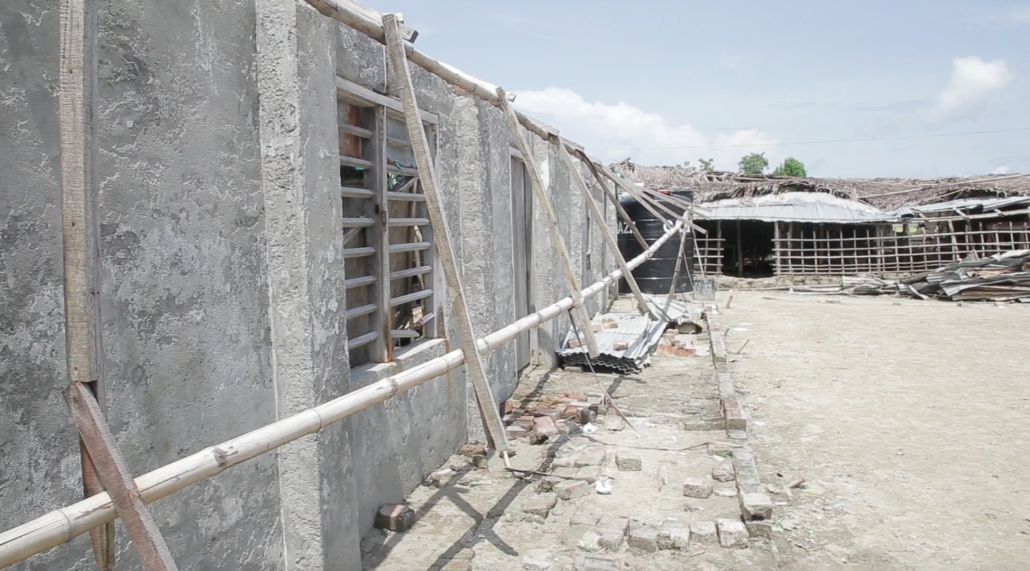Kandari is Providing Aid During COVID-19

The government of Bangladesh confirmed its first COVID-19 cases on March 8, 2020. As cases rapidly increased, so did the number of families living below the poverty line. Two months later, a second disaster struck — Cyclone Amphan. The United Nations projected that 500,000 families lost their homes. Moreover, it destroyed the structure of the Deluti Secondary School in Bangladesh, the only school within a 50-mile radius. Kandari, a local nonprofit, plans on rebuilding it with the help of volunteers and donations. Additionally, Kandari is providing aid pertaining to feeding families and providing quality education during the present challenges of COVID-19 and the destruction from Cyclone Amphan.
About Kandari
Afsara Alvee, a 27-year-old from Khulna, was living in the United States when her mother called and told her that she and Afsara’s younger brother received positive tests for COVID-19. In an interview with The Borgen Project, Afsara said that they were able to recover from home, but she knew there were many other families in Bangladesh suffering the same fate under worse conditions. In response, she founded Kandari, a nonprofit that provides resources to low-income and middle-class families that COVID-19 affected in Bangladesh.
“When their paycheck stops coming, that’s the time it hits,” Afsara said. “Because of their social status, it’s hard for them to ask for help. They never thought of going to a food bank because of the shame. But we can provide them food for at least a week or so.”
Kandari is providing aid by feeding families. Afsara oversees 17 volunteers who have been delivering food, including rice, lentils, chickpeas, oil and onions, to about 1,400 families since the start of the pandemic. Her goal is to reach 4,000 families but obtaining funding has been a challenge. When crowdfunding runs out, she spends her own money to keep Kandari’s efforts going.
The total number of confirmed COVID-19 cases in Bangladesh reached 495,841 and 7,156 deaths on December 16, 2020, according to Johns Hopkins University. Although many countries were not prepared for a global pandemic, Bangladesh must also recover from Cyclone Amphan.
Providing Quality Education
Another way Kandari is providing aid, next to ensuring food security, is by working toward granting quality education. One in four people is illiterate in Bangladesh according to the Bangladesh Bureau of Statistics. Afsara said that children who must help their families with labor or have disabilities have rarely had access to education even before COVID-19 and Cyclone Amphan forced schools to close. Her proposed education program would help provide textbooks and lunches to children in orphanages or ones whose parents are day laborers.
Cyclone Amphan hit the Deluti Secondary School particularly hard. No other schools exist in a 50-mile radius and about 202 students attended the school before the pandemic. Kandari plans on rebuilding the school and has raised $865 of its $7,000 goal on GoFundMe.
“Our slogan is there is no tomorrow because there is no tomorrow. If you see that someone needs help, if you think something bad is going to happen, then you should do something today to prevent that,” Afsara said.
Plans for the Future
Kandari means “helmsman,” someone who would guide and work selflessly to reach a destination. Afsara hopes to extend her mission to other parts of the world as well.
“We don’t want to just help today, we want to help with something that’s going to impact that person who may impact the economy and definitely impact our whole society,” Afsara said.
Afsara’s latest project, A Touch of Warmth, will give hundreds of people on the streets of Bangladesh in Dhaka, Dinajpur, Rangpur, Jessore and Bandarban blankets to cope with the winter months. She said she is always looking for more volunteers and donations to contribute to Kandari’s ongoing efforts.
– Maya Gacina
Photo: Afsara Alvee, founder of Kandari
